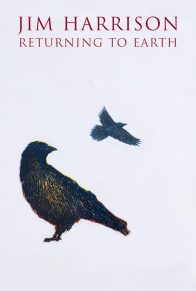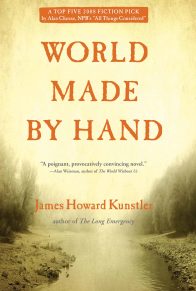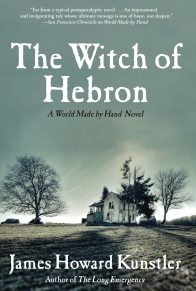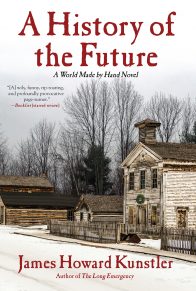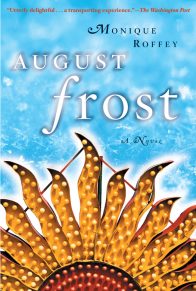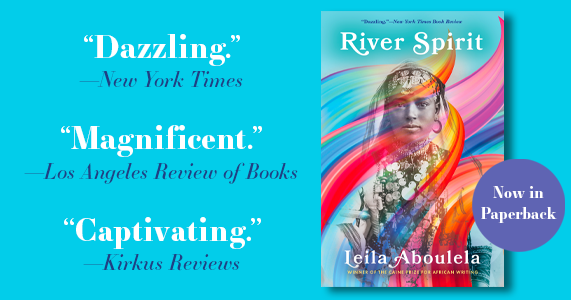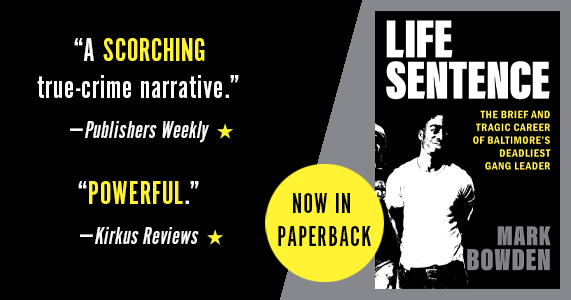He buried his nose in the wisps of sweet-smelling silver-blond hair behind her ear and whispered, “Never has there been such a Christmas.”
“Are you stoned?” Maggie inquired.
“I’ve had a dram or two.”
“Nothing more?”
“A teeny-weeny toke, perhaps,” Kenneth whispered.
‘smoking pot again, are we?”
“Is that the royal or the editorial “we”?”
“The matrimonial,” Maggie said without irony.
“Ooo. You really know how to hurt a guy.”
This was how it went with them typically. En garde, thrust and parry, touch”. Maggie was getting good and goddamn sick of it. The wordplay aside, Kenneth’s pot smoking irritated her only moderately in and of itself, though she would have been severely annoyed had she known the truth, namely that Kenneth was working on a snootful of cocaine as well as the pot and two pony glasses of straight Norse vodka. He was lit up like the antique pearlescent star at the top of their eighteen-foot Christmas tree, and the first guest had yet to arrive.
For a few years now, Kenneth had been on relatively good behavior. Maggie sometimes essayed to think he had ‘matured.” Back in “96, hadn’t they spent nearly a million dollars in legal fees clearing up that little incident when he drove his German automobile through a radar trap on the Merritt Parkway at 127 miles per hour–it handled like a dream–and was so whacked out on blow that he left a two-ounce plastic baggie of the stuff right out on the passenger seat for one Officer Wilsey to see? Not that Kenneth couldn’t afford to pay for his error. Lawyers loved to see him coming the way kitchenware purveyors rubbed their hands at the sight of Maggie.
The nineties had been stupendous years for Kenneth. Starting out in the stuffy old bond house of Throop, Cravath, Herndon, and Hobbs, he had learned the trick of packaging any old thing as a salable security: odd lots of mortgages, clumps of credit card debt, you name it. From there it could be abstracted further into options and futures, all of it oozing profit. When Kenneth was a boy he and his prep school buddies had played a variation of Monopoly in which absolutely everything on the board was for sale, not just the real estate from Baltic Avenue to Boardwalk, but also Chance, Community Chest, Go, the jail, even the manufacturer’s logo in the center. Everything was a commodity. You could even buy the tokens each player used to travel around the board–the top hat, the race car, et cetera–and charge exorbitant rent for their use. These boys had grown up and entered their fathers’ world of brokerage and had begotten the Wall Street of the eighties and nineties. That was how Kenneth Darling parlayed a very modest one-million-dollar trust fund into a two-hundred-million-dollar fortune–and he was a small fish, a guppy.
Maggie’s feelings about Kenneth were so complicated these days that she would not have known where to begin even with the help of Fairfield County’s most telepathic headshrinker–not that she needed one. Crude as it was, she rather enjoyed feeling Kenneth’s paw down her dress, for she was a woman of a certain age, and it was reassuring to know that she was desired by her husband, who by any objective standards of measurement was still a prize catch. Kenneth competed in triathlons. It was his chief avocation. At age fifty-two he had the body of a Dartmouth sophomore–a better body than the indolent beer-swilling Dartmouth sophomore he had actually been years ago. Six foot two, 177 pounds, Kenneth had pectoral muscles like Kansas City strip steaks, shoulders that looked padded under the Versace suit but were all solid deltoid meat, and a hard rippling belly that a Mexican washerwoman could scrub soapy linens on. True, he had lost his hair–at least the sandy strands on top–but what remained on the sides curled about his ears and neck to contrast nicely with his perpetually tanned skin, and his well-shaped head made up for its baldness as an elegant old house by the sea makes up for its faded paint with classic architectural proportions. His face had the same carpentered precision. Had he not been a minor Wall Street wizard with $200 million, he might well have appeared in gentlemen’s clothing advertisements. Add a pair of horn-rimmed spectacles and you would have an impression of intellect, not entirely a false one either, for Kenneth read novels.
Beyond all the good bone structure and rigorously trained gristle, however, stood the matter of his character, revealed already in part by the monkeyshines with drugs. There was also his tendency for a kind of perverse willfulness that Maggie called “Kenneth’s passive-aggressive streak.” He injured by omission rather than by commission. He forgot things: an anniversary, thank-you notes, the party at the Museum of Modern Art where he was supposed to meet Maggie after work. He called it absentmindedness. He was one of those people who say they have no sense of time and yet never show up early, only late. Maggie considered his behavior the foul excrescence of some long-buried rage, probably against his mother, Georgia, the bitch. He almost never finished a project outside the office, and Maggie wondered how many things he left dangling there, despite the fabulous stream of income. Of the nine triathlons Kenneth had entered since his coke rehab in 1996, he had dropped out on the final miles in eight of them, variously on account of “cramps,” ‘dehydration,” ‘dizziness,” and other vague complaints. In the early years of their marriage, this nonsense about not finishing things nearly drove Maggie crazy. (Maggie always finished what she started and had never missed an appointment in her life.) Back then, they worked on things together–rehabilitating the original orchard, for instance. These days, Kenneth simply paid somebody to do things: refinishing his sailboat, buying Christmas presents, driving Hooper, their son, down to his Swarthmore registration.
Lately, they might have dwelt on separate planets. Kenneth, more than ever, had his Wall Street bastion at Throop, Cravath, his exercise regime, his lunching clubs, and his sailboat. Maggie no longer had Hooper to look after. Now she had her career. In her published books on cookery and party giving, she turned her natural mode of living into a national object lesson on the domestic arts. Not the old dishpan hands, “Hints from Heloise” suburban drudgery of her mom’s day, but a new, glittering, upper-crust vision of the American hearth and home. To succeed at this was quite a feat in an age when many educated females wrote off homemaking as a sucker’s game invented by the enemy, men, to keep women down. Apparently, a residual desire to provide something more spiritually fortifying than microwaved veal stew and canned entertainment still lurked deep, even in educated hearts. And, of course, more and more Americans, including those with good incomes, lived in soulless, artificial places that they despised, in homes that mocked their ideals about a good life, surrounded by laborsaving gadgets that eliminated all the shared material enactments of marriage, until couples stayed together mainly because they liked the same TV shows.
Maggie’s evocation of the American home was an antidote to all this, and she was making a fortune writing books about it. Nothing like Kenneth’s millions, but to date a good $7.8 million in net profits. In short, she could easily take care of herself now, and nearly in the manner to which she was accustomed. It was something she and Kenneth didn’t talk about openly–for money, among those who have a lot of it, is considered a squalid topic–but Maggie’s recent success had changed the equation of their union.
“Let’s have a quickie, darling,” Kenneth breathed warmly in her ear, his left hand still rummaging in her bodice, his right hand on the velvet overlaying her Junoesque belly.
“You must be insane,” Maggie said, not pugnaciously but with a deep rueful exhalation. Kenneth was an avid lover, perhaps to a fault. But could there be a worse moment?
At once footsteps resounded on the ancient pine floors as servants swarmed into the hall seemingly from every opening. Kenneth extracted his hand and jerked himself around looking nonplussed. One of the waitresses hired for the night noticed his loss of poise and giggled. She was a Sarah Lawrence freshperson. Meanwhile, a chunky brunette with laughing eyes, dressed in a chef’s white tunic, marched up to Maggie carrying a clipboard. This was Nina Stegman, Maggie’s assistant. Aide-de-camp was more like it. Tonight, she was in charge of a Christmas Eve Feast for Two Hundred, as the affair would eventually be recorded in one of Maggie’s books on holiday entertaining. Maggie, blushing, smoothed her velvet gown and adjusted her emerald drops.
“I’ll see to the barman,” Kenneth said and made himself scarce.
“The last of the capons will be finished at seven sharp,” Nina reported, “but the left oven on the big Garland is acting weird.”
“Weird?”
“It’ll shoot up to five hundred for no reason.”
‘damn! The thermostat’s shot again,” Maggie said decisively. “It happened on Thanksgiving in “93 and incinerated three acorn-fed pheasants I’d mail-ordered from Michigan. You’ll have to regulate it manually. Here’s what you do. Take a wooden spoon and jam it in the door so it stays open a crack to let the heat out. Keep close tabs on the thermometer inside. It takes vigilance but it’ll work in a pinch.”
“Roger,” Nina said, in her jocular military manner. She loved high-pressure situations, as did Maggie, and for much the same reason: both were highly competent individuals who relished the chance to shine in an emergency. ‘did you want to use the hollowed-out hubbard squashes for the stuffing?”
“No, the footed Targee silver bowls. You know, those acanthus-leaf things.”
“Oh dear, I thought I’d put the parsnip puree in those.”
“No, the Staffordshire luster.”
“Roger. And the yams in the Meissen basins.”
“Check,” Maggie said as Nina scribbled away. “Okay then, hors d”oeuvres–endive and codfish gunk?
‘done.”
“Empanadas?”
“Baked and resting. Will brisk as needed.”
“How about the mango salsa.”
“Just spooned it into radicchio cups.”
‘do they sit okay on the tray?”
“The weight of the salsa flattens out the bottoms.”
‘shrewd. How about the minisouffl’s?”
“Capons out, souffl’s in.”
“Angels on horseback?”
“All saddled up and ready to ride.”
“Crab sticks?”
“An anytimer. The first guest.”
‘do I look all right?”
Nina lowered her pen, eyes narrowing. Maggie adored her assistant’s brutal honesty.
‘something’s a little odd here,” Nina said, wedging the clipboard under her arm and fussing with Maggie’s left shoulder strap.
Maggie was tempted to tell Nina that Kenneth had been feeling her up a moment ago–a perverse impulse to brag–but something stopped her.
“There, that’s better,” Nina said. “The house looks gorgeous.” She kissed Maggie on the cheek and bustled back toward the kitchen.
A photographer materialized, burdened with Nikons. This would be Reggie Chang, who had worked with Maggie on her last three books. Maggie was his favorite subject. He could just point and shoot. It was impossible to get a bad picture of her. Reggie had never seen anything like it. He worked with thousand-dollar-an-hour models all the time, and even these ethereal creatures could look like goons and harpies once in a while. But Maggie, never. She had some supernatural ability to appear winning, intelligent, and perfectly natural in every shot. The camera not only loved her, it seemed to owe her some huge debt. Each contact sheet was flawless. And the oddest thing was, until her rise as an author and tastemaker, Maggie had never modeled professionally for so much as a toothpaste ad.
On top of the professional pleasures of photographing Maggie came the side benefits. For example, tonight’s lavish affair. Reggie loved parties and Maggie’s were simply the best. Perhaps a little short on film stars and the Soho art-noir crowd, but with plenty of celebrities of the more elevated sort. And always with that deeply specific sense of occasion. A Maggie Darling Fourth of July made you glad to be an American no matter which knucklehead occupied the White House or what country we were bombing. And a Maggie Darling Christmas made Reggie feel as though the blood in his veins went back to Ethelred the Everready of the Saxons. There wasn’t a time Reggie came to Maggie’s house when she failed to feed him magnificently. Her kitchen made Lut”ce look like a Greek luncheonette. Reggie couldn’t figure out how she did it–and he wasn’t the only one. After a day of shooting, he’d sit at the big scrubbed pine table sipping a kir while, out of what seemed like nothing more than a few scraps, Maggie whipped together fettucine with lobster chunks in ginger cream, or some such. He had seen her do it! Not Nina Stegman or some factotum. She blew his mind.
Reggie was more than half in love with Maggie Darling. Driving out of Manhattan in his sporty red Miata, he wondered endlessly what possible circumstances might induce her to pose in the nude for him. These thoughts led to sexual fantasies that embarrassed even Reggie in the privacy of his own skull, they were so hopelessly adolescent. For instance: Maggie bent over an arugula patch, dressed only in clogs and gardening gloves, presenting her bare buttery posterior as she glanced over her shoulder at the lens . . . things like that. Yet, no matter how bestial the tableau, Reggie could not imagine Maggie looking other than winning, intelligent, and perfectly natural. To him, she was no less than what her books (and his photos) made her out to be: the quintessential American woman.
Reggie never let on about the depth of his feelings. The fact that Maggie was twelve years older than he made her seem that much less obtainable, though the older-woman angle also increased her allure. Lastly, there was Kenneth. Reggie thought of him as Hercules Unchained with a bottomless bank account. Next to Kenneth, Reggie felt like a fat little laughing Buddha of the type sold in cheap Chinatown giftshops.
“I’m so glad you’re here,” said Maggie, greeting him with a kiss.
Melting in her hearthlike glow, Reggie said, “I shot a roll of the house from outside. With the snowflakes swirling around it looks like one of those liquid-filled paperweights that you shake.”
“It’s snowing out!”
“Why, yes.”
“I had no idea.” Maggie bit her lip, imagining her guests’ automobiles fishtailing into highway guardrails and ditches, nobody showing up, all the food and work wasted–but she immediately dismissed the thought as though it were a misbehaving employee.
‘say, that’s a snazzy outfit, Reg,” she said, forcing herself to focus on something immediate and real.
It was a shawl-collared dinner jacket of crushed velour, in deep holly green.
“Ralph Lauren, fifteen hundred bucks,” Reggie said. He knew she’d ask.
‘very nice. Say, do you mind following me around while I see to things?”
And so Reggie tagged after her like a paparazzo, snapping his shots as Maggie made a final inspection tour of the premises before the big rush.
Copyright ” 2004 by James Kunstler. Reprinted with permission from Grove Atlantic, Inc. All rights reserved.





